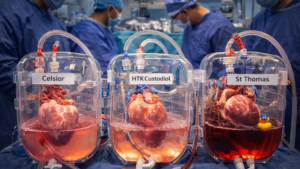Objectives: Continuous, therapeutic anticoagulation is the standard of care for patients on extracorporeal membrane oxygenation (ECMO). The risks of hemorrhage exacerbated by anticoagulation must be weighed with the thrombotic risks associated with ECMO. We hypothesized increased thrombotic events in patients who had interrupted (vs. continuous) anticoagulation during venovenous ECMO.
Design: This is a retrospective, observational study.
Setting: Enrollment of individuals took place at three adult ECMO centers in Minnesota from 2013 to 2022.
Patients: This study consists of 346 patients supported with venovenous ECMO.
Interventions: Anticoagulation administration was collected from electronic health records, including frequency and duration of anticoagulation interruptions (IAs) and timing and type of thrombotic events, and data were analyzed using descriptive statistics.
Measurements and main results: A total of 156 patients had IA during their ECMO run and 190 had continuous anticoagulation. Risk adjusted logistic regression demonstrated that individuals in the IA group were not statistically more likely to experience a thrombotic complication (odds ratio [OR], 0.69; 95% CI, 0.27-1.70) or require ECMO circuit change (OR, 1.36; 95% CI, 0.52-3.49). Subgroup analysis demonstrated greater frequency of overall thrombotic events with increasing frequency and duration of anticoagulation being interrupted (p = 0.001).
Conclusions: Our multicenter analysis found a similar frequency of thrombotic events in patients on ECMO when anticoagulation was interrupted vs. administered continuously. Further investigation into the impact of the frequency and duration of these interruptions is warranted.







